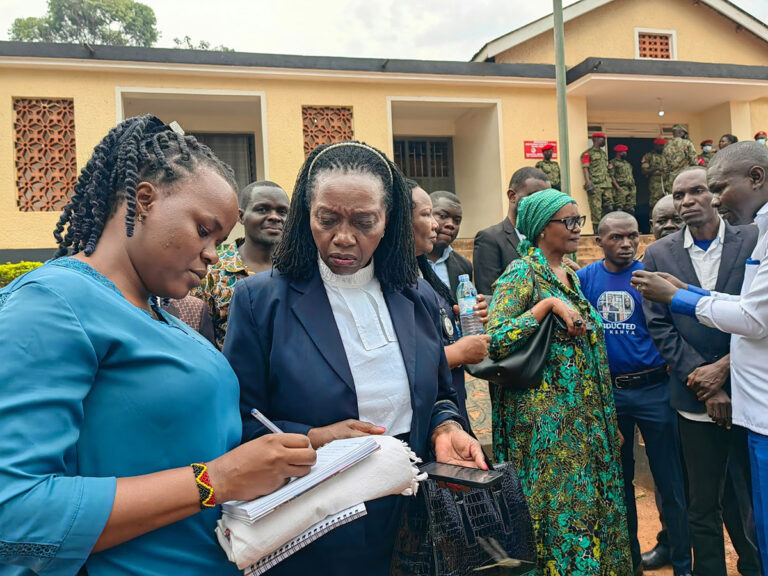The Uganda Law Council is set to hold a special meeting today to review a second application submitted by Martha Karua, a former Kenyan Minister of Justice, for a temporary practicing certificate.
Karua was appointed to lead the defense team of Dr. Kizza Besigye, former president of Uganda’s Forum for Democratic Change (FDC), and his aide, Haji Obeid Lutale.
The two are facing charges before the General Court Martial for alleged subversion and unlawful possession of firearms.
The Legal Hurdle
Karua’s ability to represent her clients in Uganda hinges on her clearance to practice law in the country, as stipulated by Section 18(i) of the Advocates Act.
This law mandates that foreign lawyers seeking to work in Uganda must come from a Commonwealth nation, obtain a temporary practicing certificate, and be affiliated with a local Ugandan law firm.
Karua submitted her application through Lukwago and Company Advocates, a prominent Kampala law firm owned by Erias Lukwago, the city’s Lord Mayor.
If approved, her certificate would permit her to appear and act solely in this specific case.
However, the Law Council had previously rejected her initial application, citing procedural deficiencies.
These included the absence of notarized copies of her practicing certificate, a letter of good standing from the Law Society of Kenya, and evidence of any special legal expertise she intends to contribute.
What’s at Stake
The Law Council’s decision has significant implications for the high-profile case involving Besigye and Lutale, which has drawn widespread attention in Uganda and the region.
The charges of subversion and unlawful possession of firearms have political undertones, given Besigye’s history as a prominent opposition leader and frequent government critic.
Legal analysts argue that the composition of the defense team, particularly with Karua at the helm, could influence the case’s trajectory and public perception.
Karua, known for her legal acumen and staunch advocacy for human rights, is regarded as a heavyweight in East African legal and political circles.
Her involvement in this case underscores its regional importance and the scrutiny it has attracted.
The Certification Process
The process for obtaining a temporary practicing certificate in Uganda involves several steps and costs. Applicants must pay a certificate fee of UGX 50,000 and additional charges, including a UGX 400,000 membership fee to the Uganda Law Society, USD 50 (approximately UGX 184,360) for East African Law Society membership, and UGX 50,000 for High Court library fees.
The Law Council will need to determine whether Karua has now addressed the earlier deficiencies in her application.
If successful, she will join the defense team as they prepare to face the military court, where proceedings are often viewed as opaque and fraught with political sensitivities.
Broader Implications
The decision by the Uganda Law Council could set a precedent for foreign lawyers seeking to practice in Uganda, particularly in politically charged cases.
It also raises questions about regional cooperation within the East African legal fraternity.
Uganda Law Society President Isaac Ssemakadde emphasized the importance of adhering to legal standards while ensuring fairness in the process.
“We must strike a balance between protecting the integrity of our legal profession and fostering regional cooperation,” Ssemakadde noted in a statement issued last week.
As the Law Council deliberates, all eyes will be on the outcome, which could shape not only the fate of Besigye and Lutale’s defense but also the broader dynamics of cross-border legal practice in East Africa.

